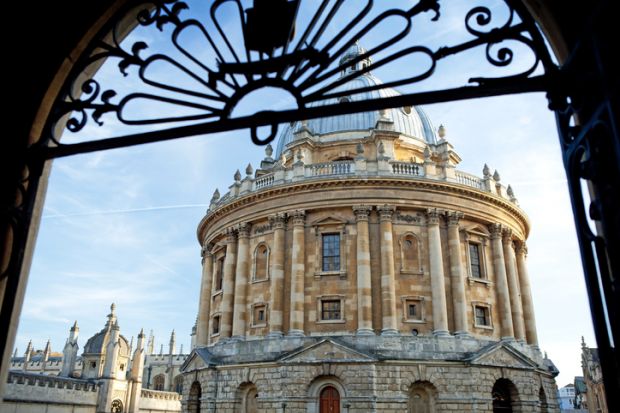In a pandemic that has sickened and killed mostly older people, the plight of university students was always likely to be an afterthought. After all, higher education concerns only a minority of people in normal times, while UK students may have been regarded as fairly resilient to pandemic pressures either because they are affluent or privileged by social and educational opportunities.
It is worth reminding people, however, that these are privileges we pay handsomely for these days and for which, in recent times, we have been unbelievably short-changed.
This neglect of students’ interests is no better illustrated by the lack of clarity over the reopening of campuses in the week that shops, schools, pubs and hairdressers exit lockdown. As a second-year student at the University of Oxford, this lack of information is particularly egregious given the meticulous detail provided for less important things, such as the opening of drive-in cinemas.
It matters because students have experienced a grossly diminished learning experience. Over the three terms in which I have had online learning, I have had countless incidents of classes ending early, being kicked out by a poor wi-fi connection or simply classes where it is frankly impossible to learn at all because of technical difficulties.
I have also not sat a single proper exam since my A levels, meaning that my fourth-year finals (as a language student I am taking a year abroad) will be the first real exams I will have taken in about five years. I understand this is a niche concern, but for me it is terrifying and incredibly frustrating given the high quality of the in-person teaching I received in my first year, and to some extent in the first term of this year.
Unlike students at other universities, because I normally live in college accommodation I have also not been able to return to my university city and access libraries. My college has been particularly obstructive regarding students who wanted to legally return due to poor working conditions at home. Students with poor wi-fi were told to use the money they saved on rent to boost it, showing a complete lack of understanding for those who must contribute to the household budget, while students with nowhere to work or who shared crowded bedrooms with siblings were told to explore “shared working solutions” by tutors who had been going into their own college offices every day.
These attitudes embody more generally the government policy towards higher education – a government that has exhibited a complete lack of concern about student well-being.
I’ve also been disappointed by Labour’s silence over young people’s mental health in the pandemic and the true toll caused by the lockdown; it seems to me to come from a position of middle-class, middle-aged privilege that goes against every value your party claims to stand for. I fear Labour have largely ignored young people, thinking that they already have our votes. Other political alternatives are almost equally unpalatable, but I shall certainly not be voting for Labour in the next election unless I see a radical change of position.
As a result of being socially distanced from my university, I’ll admit that I am significantly behind academically, partly because certain books simply cannot be found online, which adds to my already depleted mental health. Mentally, I have never been worse.
My social life is also incredibly depleted, having missed out on so many social events and milestones that those taking these draconian lockdown decisions took for granted when they were students. I feel utterly hopeless about the future too because I’m unconvinced by the flimsy logic of the government’s reopening plan, while its track record of moving the goalposts on the lifting of lockdown gives me no hope that there will be a return to normal.
Some will argue that another five weeks removed from campus is a comparatively small issue, but I believe we need an immediate full return of universities for the summer term. Delaying a full return until 17 May is nonsensical and shows a characteristic lack of empathy for what has been an incredibly isolating and challenging year for students.
There has scarcely been more a few reported cases of Covid transmission from in-person teaching and, because of the levels of herd immunity present in the student population and their low risk of becoming seriously ill with the disease, such a return is well worth any perceived risk.
Moreover, national statistics show that three-quarters of students have already returned to their term time accommodation without any spike, making any arguments about uncontrollable flare-ups null and void.
All I can deduce from the government’s behaviour is that it has a distinct lack of appreciation for education, as opposed to its apparent enthusiasm for zoos, tattoo parlours and outdoor cinemas. If they held higher education and students in higher regard, who knows, they might learn something?
That said, if I cannot plead on educational grounds, I implore the government to allow some kind of normality for my summer term, which would make a transformative difference to my mental health and that of all my peers.
Olivia Winnifrith is a second-year student in history and French at the University of Oxford.




